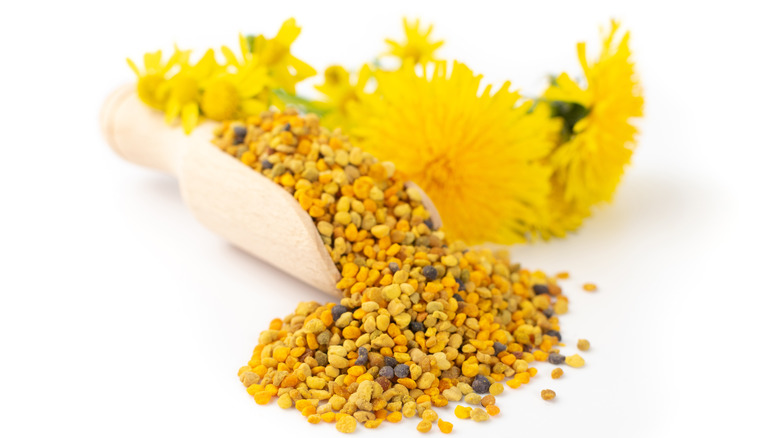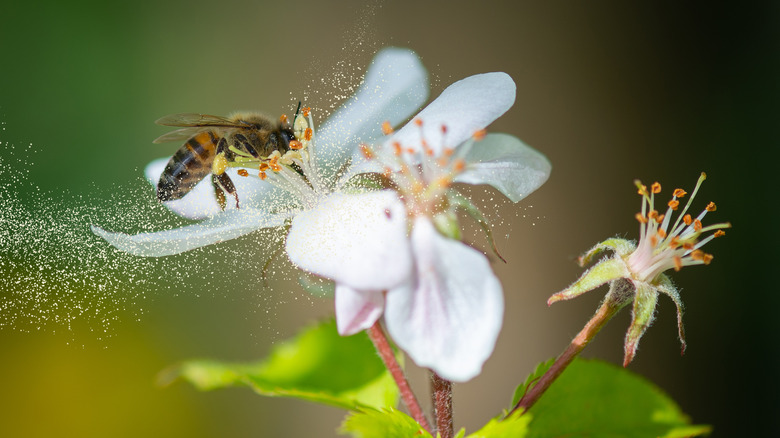Why You Should Consider Adding Bee Pollen To Your Diet
Bees are one of Mother Nature's little miracles and the world's top pollinator (via Proceedings of the Royal Society B). They produce honey, one of humanity's most valuable ancient foods and natural medicines, as illustrated by the National Honey Board, along with beeswax, bee venom, and royal jelly. However, bees also collect pollen and nectar from flowers to feed on. Proponents say bee pollen contains nutrients that benefit humans, and WebMD supports that statement to an extent — but does the science support the hype?
Bees collect pollen on their bodies each time they land on a flower. Beepods explains that bees carry the pollen back to the hive to make bee bread and store it for later consumption. However, the bee pollen offered in stores and restaurants is often regular flower pollen. Beekeepers collect the pollen from bees by installing pollen traps that scrape pollen from the bees as they enter the hive. The bee pollen is usually not processed further before hitting the retail market.
While bee pollen is a reasonably new supplement to Western markets, other cultures have been using bee pollen to support health and wellness for centuries. Bee pollen is generally safe for most people, and it's easy to add to your diet. You can sprinkle it on meals or add it to a smoothie, but Healthline notes that people with bee allergies should avoid taking bee pollen.
Bee pollen may offer multiple health benefits
According to a 2015 review published in Hindawi, bee pollen may promote human health and wellness because of its more than 250 compounds, including amino acids, flavonoids, vitamins, and macro and micro-nutrients. Pollen is a significant source of vitamins A, E, B1, B2, B6, D, and C. Macronutrients include potassium, calcium, and magnesium, plus micronutrients such as iron, copper, zinc, and manganese. It also contains large amounts of protein, essential fatty acids, phospholipids, and a host of phenolic compounds.
Bee pollen's unique chemical makeup has been shown to help improve circulatory and cardiovascular issues, including protection from heart attack and stroke. Animal studies suggest bee pollen could help prevent and reverse liver damage due to drug and alcohol use and protect against toxic occupational hazards, like heavy metals, industrial dust, and gases.
Bee pollen has long been used to treat inflammation. Animal studies show that bee pollen extract can reduce swelling and possibly protect against the development of tumors (per Healthline). It may help support immune function, kill bacteria, boost metabolism, relieve menopausal symptoms including hot flashes, and improve muscle growth. However, not all bee pollen is created equal. How well bee pollen works depends on which components it contains. A 2019 study published in the Saudi Journal of Biological Sciences noted the chemical composition of bee pollen changes depending on which flowers the pollens were sourced.


